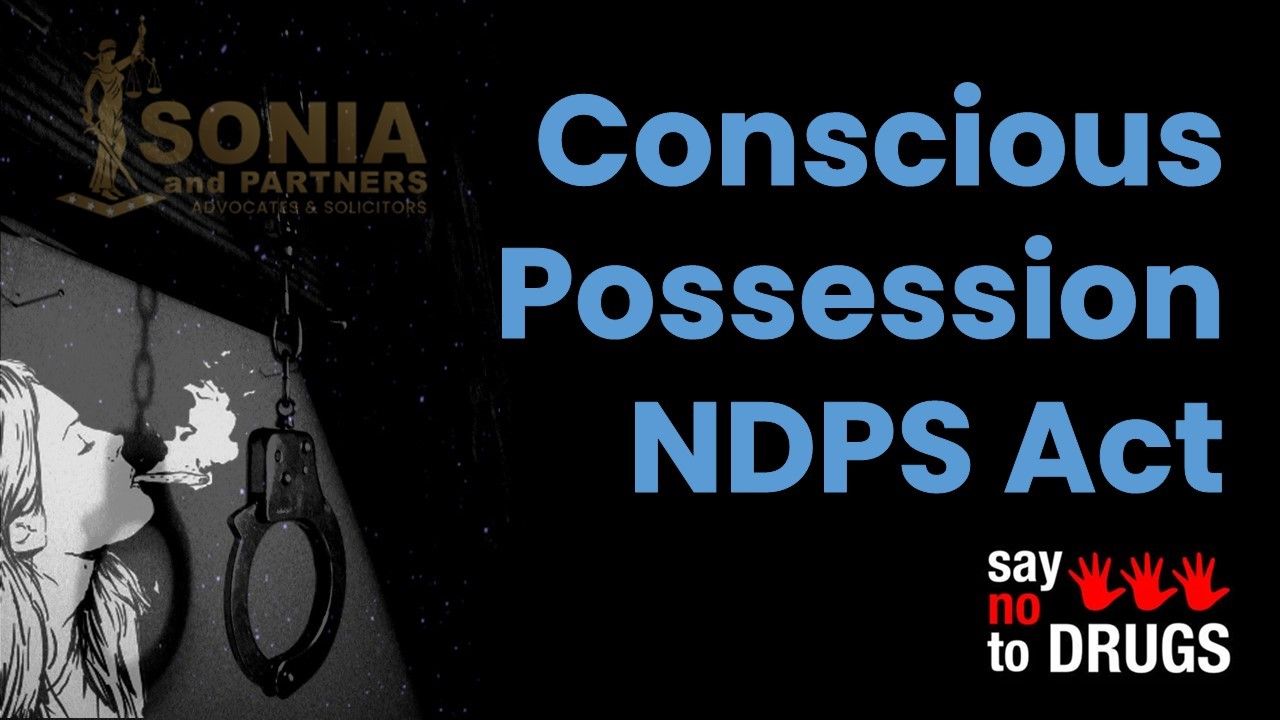Home Blog
Blog Conscious Possession NDPS (Narcotic Drugs and Psychotropic Substances) Act
Conscious Possession NDPS (Narcotic Drugs and Psychotropic Substances) Act

NDPS Trial is very complicated, the trauma suffered by the accused who pleads non-guilty and his family is immense.
At times the accused is a victim of circumstances, the contraband found under the possession of the accused may be entrenched, by duping him/her. It can be planted in the car, at the home, cupboard of a roommate, in the luggage, the accused would be requested to deliver some parcel unaware of the content. If such contraband is found in the possession of the accused, the burden is on the accused to prove they were not aware of the contents of the bag or parcel.
In the NDPS trial, court presumes that accused who pleads non-guilty is innocent until the prosecutor proves guilt beyond a reasonable doubt.
The factors that drive best defence strategy revolves around Establishing Credibility, Witness Testimony, Physical Evidence, Errors in Reports by Police, Judicial Precedent, Mistaken Identity, Compelled or false confessions, Entrapment, Defendants Alibi, False Accusation, Mistaken Fact, Forced Intoxication, Unsoundness of mind etc…
Conscious Possession is not defined in the act, but is a very important strategy used by a trial lawyer for NDPS while positioning the arguments. Conscious Possession means a mental state of possession (awareness of possession or possession accompanied with intention) that is bound to be considered along with Physical Possession.
As per the NDPS Act., any prosecution, the mental element is of primary importance, the court provides an opportunity to the accused to prove he/she had no such mental state in relation to the offence been charged with and prove beyond reasonable doubt that such contraband is planted by someone. The Police and the Public Prosecutor can only prove the Physical Possession not the mental easily.
Some important citations for reference:
Ashok Kumar vs. Union of India: Three prong rule is defined in this case.
- There must be actual or potential physical control.
- Physical control is not possession unless accompanied by intention
- The possibility and intention must be visible or evidenced by external signs
Mohan Lal v. State of Rajasthan: It was further held that conscious or mental state of possession is necessary and that is the reason for enacting Section 35 of the NDPS Act
Inder Sain vs. the State of Punjab: It was held that it will be practically impossible for the prosecution to prove the ‘knowledge’.
Madanlal & Anr vs State of Himachal Pradesh: It was held that physical possession should coupled with mental state of mind to prove beyond doubt and be liable under Section 20 of NDPS Act.
Dharampal Singh vs The State of Punjab: The court held that, the Car in which the Co-Accused was driving was not a public carriage, so it cannot be proven beyond doubt that he does not have knowledge (Conscious Possession) of the contraband.
G Pathan & Anr vs State of Gujarat: It was held that the passenger in the auto rikshaw that was carrying the contraband was just a traveller and it can be proven beyond doubt that he may not have the Conscious Possession. Further the court observed that the accused does not have any preconceived notion or motive to commit such offence
Waqar Ahmad Dar Vs UT of J&K: Standard Of “Conscious Possession” is different in case of a Public Transport as opposed to Private Vehicle. In this case the accused and the co-accused were travelling together in a private vehicle and were known to each other. This clearly indicates that they were in conscious possession of the contraband substance, it wasn’t proven beyond doubt where and why were they traveling together.
Manzoor Ahmad v. Union Territory of J&K : The court placed on Gurcharan v. State of Delhi Administration and Devi Das Raghu Nath Naik v. State reiterating the objective of granting bail, “It is a settled position of law that grant of bail is a rule whereas its refusal is an exception”. The question whether bail should be granted in a case has to be determined on the basis of the facts and circumstances of that particular case
Conclusion: There is no client, as scary as an innocent man. If such an innocent is imprisoned it ruin the persons future and the family suffers for a life time due to miscarriage of justice. Its relatively less difficult to prove at times a guilty person non-guilty given the benefit of doubt, but the most difficult trial is to proves one’s innocence who is a victim of circumstance and is really non-guilty.
In this part of the blog series on NDPS we looked at the concept of Conscious Possession. You may also wish to refer How to Get Bail in NDPS Case.
Feel free to write to us at mail@lawyersonia.com or call +91 9845944896 if you wish to consult or discuss your matter. “Sonia and Partners” is a Boutique law firm led by Adv. Sonia Rajesh supported by a team of qualified and among the Best Lawyers in Bangalore practicing in the area of Criminal defence serving Citizens of India, Overseas Indians, NRIs and Global International Clients.
 11:00 – 19:00
11:00 – 19:00